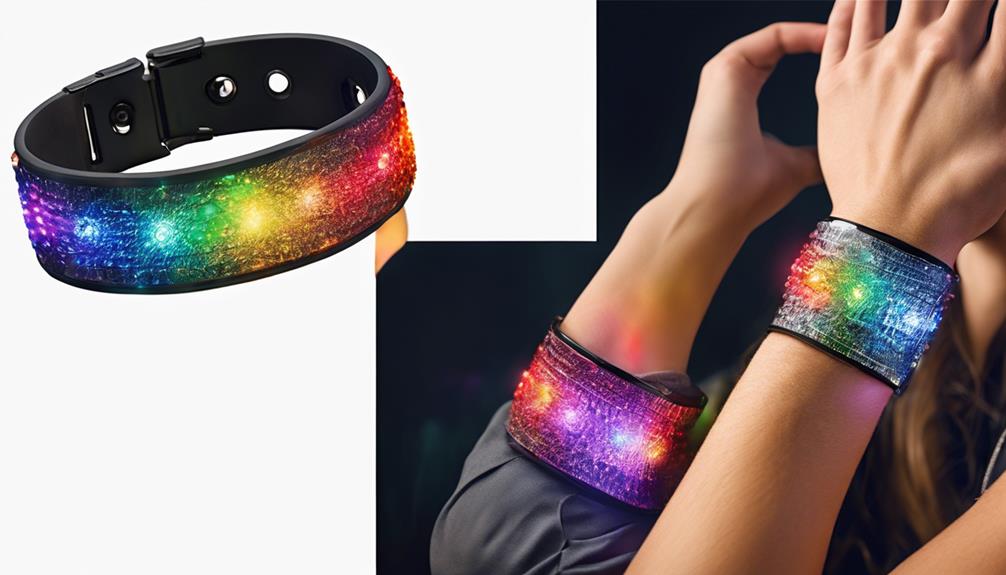To protect your mental health and cope with social fatigue, set boundaries around your digital use and social interactions. Take intentional breaks from screens and social media to recharge emotionally and build resilience. Prioritize offline activities that bring you joy and help reveal your limits. Practicing mindfulness and managing social exposure can prevent burnout. Staying aware of these strategies can help you maintain balance—if you want to learn more, there are simple ways to strengthen your emotional resilience.
Key Takeaways
- Set boundaries around digital device use to prevent social overload and protect mental well-being.
- Take regular digital detoxes to reset emotions and reduce feelings of overwhelm.
- Prioritize offline activities and social interactions to strengthen emotional resilience.
- Practice mindfulness and self-care to manage social stress and maintain mental balance.
- Recognize personal limits and say no when necessary to avoid burnout and preserve mental health.

Have you ever wondered why protecting your mental health is just as important as caring for your physical health? In today’s connected world, social fatigue can sneak up on you, draining your energy and leaving you overwhelmed. That’s where taking a digital detox becomes essential. Constant notifications, social media updates, and digital interactions can overload your mind, making it harder to recharge emotionally. By stepping back from screens periodically, you give yourself a chance to reset and regain clarity, which is essential for maintaining emotional resilience. A digital detox isn’t just about reducing screen time; it’s about creating space for real presence and reflection, helping you better manage social interactions and emotional stressors. Practicing mindful digital consumption can also help you develop healthier habits around technology use.
Taking regular digital breaks helps restore emotional resilience and manage social fatigue effectively.
Social fatigue often stems from feeling like you’re always “on” and expected to respond immediately. This persistent pressure can wear down your emotional resilience, the ability to bounce back from stress and maintain a balanced outlook. When you’re constantly plugged in, you might find yourself feeling anxious, irritable, or exhausted even after social encounters. To combat this, it’s important to set boundaries around your social interactions and prioritize your mental health. Taking intentional breaks from digital devices allows your mind to rest and recover, reducing feelings of overwhelm. It also creates room for meaningful offline experiences, which can boost your emotional resilience over time.
Building emotional resilience isn’t just about avoiding burnout; it’s about strengthening your capacity to handle social fatigue when it inevitably arises. Practice mindfulness, engage in activities that bring you joy, and don’t hesitate to say no when social demands become too much. Recognize your limits and give yourself permission to step away from social obligations for a bit. These small acts help fortify your mental defenses, making you more adaptable and less prone to feeling drained. Remember, protecting your mental health doesn’t mean isolating yourself; it’s about managing your social exposure in a way that supports your well-being.
Incorporating regular digital detoxes and consciously nurturing your emotional resilience can considerably improve how you handle social fatigue. It’s about being intentional with your time and energy, ensuring you’re not just reacting to social demands but actively managing them. By doing so, you’ll find it easier to face social situations with a clearer mind and a more balanced emotional state. Ultimately, caring for your mental health involves understanding your limits, creating healthy boundaries, and giving yourself the grace to step back when needed. This proactive approach keeps you resilient, emotionally grounded, and better equipped to enjoy social connections without feeling overwhelmed.
Frequently Asked Questions
How Can I Tell if Social Fatigue Is Affecting My Mental Health?
You can tell if social fatigue is affecting your mental health by paying attention to self-awareness cues and emotional warning signals. Notice if you feel unusually irritable, overwhelmed, or drained after social interactions. If you start avoiding social situations or feel anxious beforehand, these are signs your mental health might be impacted. Being mindful of these cues helps you recognize when to step back and prioritize self-care.
Are There Specific Signs of Social Fatigue in Teenagers?
You might notice signs of social fatigue in teenagers through increased teen social withdrawal and changes in peer relationships. They may avoid social activities, seem more irritable, or lose interest in friends. Watch for feelings of exhaustion after social interactions or reluctance to join group events. These signs indicate that social fatigue is affecting their mental health, and addressing these changes early can help them regain their balance and well-being.
Can Social Fatigue Lead to Long-Term Mental Health Issues?
Social fatigue can indeed lead to long-term effects if left unaddressed. You might find persistent anxiety, depression, or social withdrawal developing over time. To prevent these issues, it is crucial to recognize early signs and set boundaries. Incorporate prevention strategies like taking breaks, practicing self-care, and seeking support when needed. By acting now, you help protect your mental health and reduce the risk of lasting impacts from social fatigue.
What Are Quick Relief Strategies for Social Exhaustion?
Think of social exhaustion as a storm cloud overhead. To clear it quickly, try mindfulness techniques—focus on the present moment. Deep breathing exercises can also help you reset, calming your mind and body. Take a few slow, deliberate breaths, inhaling deeply and exhaling fully. These simple strategies can bring immediate relief, helping you regain balance and feel more centered after social fatigue.
How Does Social Fatigue Differ From Social Anxiety?
Social fatigue differs from social anxiety because it’s mainly about feeling emotionally exhausted after social interactions, leading you to withdraw socially. You might feel drained and need time alone to recharge. In contrast, social anxiety involves intense fear and worry about social situations, often causing avoidance due to nervousness. While social fatigue is a temporary state of emotional exhaustion, social anxiety is a persistent fear impacting your daily life.
Conclusion
Remember, protecting your peace begins with mindful moments and managing your mental maze. By setting boundaries, balancing burdens, and breathing through the chaos, you can banish burnout and boost your brilliance. Embrace ease over exhaustion, and let self-care be your sanctuary. Stay strong, stay serene, and safeguard your spirit. In your journey, prioritize peace and practice patience—your mental health will flourish when you nurture your mind with kindness and courage.










